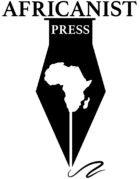By Patrick Mbullo
In the Greek mythology, Chimera is described as a fire-breathing female monster whose body parts comprise of different animals including a lion, a goat and a dragon. In its heyday, Chimera breathed fire, destroyed and plundered crops. It caused great damage in the cities of Caria and Lycia until King lobtse of Lycia in an ill motive, ordered Bellerophon to slay her.
In the Christian narrative, a similar description a Chimera can be found in the Book of Revelations, also known as the apocalypse of John. Here, the prophesy is of a beast from a bottomless pit described as having seven heads and ten horns, and upon his horns ten crowns. The leopard like beast, had the feet of a bear, the mouth of a lion and drew its power and authority from a dragon. The beast made war with the saints, plundered and reigned over all nations. In the scientific world today, a chimera has been used to refer to controversial organisms whose genetic materials (DNA) are made up of two or more sources.
In principle, a chimera remains an enigma whose genesis and extent of damage is difficult to fathom. The picture we are given demonstrates a creature with insatiable greed and want; a deceitful and powerful deity with a conviction to conger, plunder and rule. In the recent past, China has been described as the economic savior of the developing nations including a number in the African continent. In this role, China has extended vast loans to the African nations for the purpose of infrastructure development, expansion of trade, science and technology as well as military support. The friendly gesture has seen many African head of nations visit China to sign trade deals whose finer details are not known.
Though seen as the most viable route through which African nations will experience fast economic growth, these loans have raised eyebrows as countries cede strategic state assets as collateral to the loans. Sri-Lanka for example gave away a lucrative port to the Republic of China for a 99-year period after it failed to repay back huge sums of money extended for infrastructure development. It has been rumored that Kenya will be among the first African nations to go the Sri-Lanka way because its already in the abyss of Chinese debt trap. The lucrative Lamu and Mombasa Port have been said to be part of some assets already attached to the Chinese loans.
The recently completed Standard Gauge Railway is currently under the management of Chinese contractors who are responsible for collecting revenue. This railway line will only be handed to the Kenyan government after China recovers the loan. Similarly, rumors have it that some of the major road that are under construction will have toll stations operated and controlled by China.
Trade deals for agricultural products like tea have also been signed with China. Most recently, Kenya signed a deal with China to for export of its newfound oil. Several barrels of crude oil have already left Kenyan port to China. Even though it is on record that the Communist Party of China promised to work with the ruling Jubilee Party in advancing its manifesto. It is still not very clear how this political collaboration has played out. What is clear is that there has been a lot of unorthodox and authoritative tendencies in the Kenyan executive that mirrors that of the Communist Party of China.
—
Patrick Mbullo is a graduate student in the department of anthropology at Northwestern University, Evanston, Illinois, USA. For contact: patrickowuor2021@u.northwestern.edu

